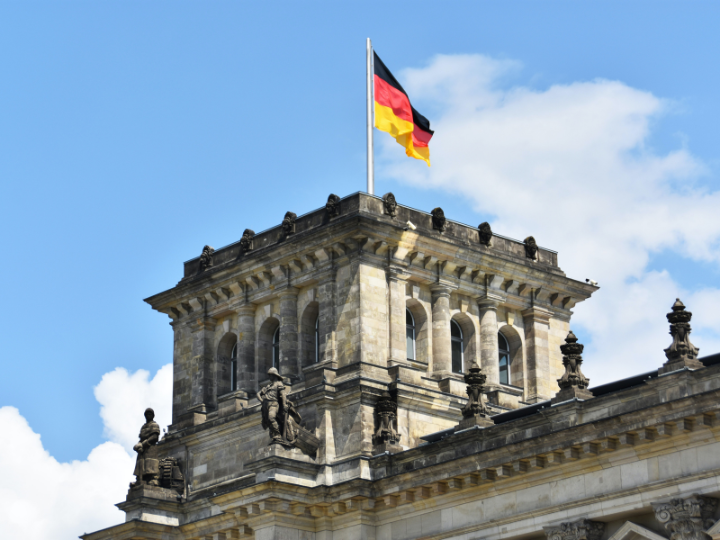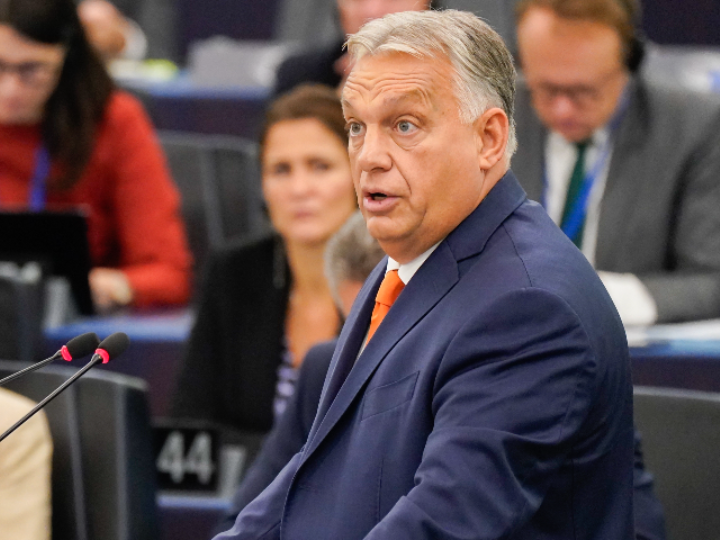by Jonathan Packroff
The German three-party government coalition has suffered major losses in two state elections in Bavaria and Hesse, with Chancellor Olaf Scholz’ SPD (S&D) receiving the worst result in both states since the Second World War.
Two years after the federal government of Scholz’s Social Democrats, Greens and Liberal FDP (Renew Europe) was elected in 2021, all three parties lost votes in two state elections in Bavaria and Hesse on Sunday (8 October).
Scholz’s SPD received the worst results in post-war history, reaching 15% (-5) in Hesse and 8% (-2) in Bavaria, according to ARD preliminary results.
“If all the coalition parties lose in both federal states, then this also sends a message to Berlin,” SPD secretary general Kevin Kuhnert told broadcaster ARD on Sunday evening, admitting that the results were mainly caused by the performance of the federal government.
In both state elections, Scholz’ SPD fell behind far-right AfD party, which reached its best result ever in West German state elections, with 18% (+5) in Hesse and 16% (+6) in Bavaria.
Notably, migration policy was on voters’ mind, with 83% of all voters in Bavaria and 73% of all voters in Hesse saying in exit polls by Infratest Dimap that they want to see a “different asylum and migration policy, so that fewer people come”.
This was an issue that the government needs to “tackle urgently”, SPD chief Lars Klingbeil told ARD, adding that “the refugee numbers are too high”.
In Hesse, federal interior minister Nancy Faeser was leading the SPD campaign, hoping to become the next state prime minister. But with her parties’ result, there is no chance for her to form a majority. In the exit polls, only a third of voters said that she was doing a good job as a federal minister.
Apart from migration policy, AfD chief Alice Weidel also named a controversial heating law as an explanation for the success of her party, telling ARD that citizens would be “dissatisfied with the federal government’s banning policies”.
Not only Scholz’s SPD has seen a defeat, but the two other coalition partners also lost votes. The Greens reached 15% (-3) in Bavaria and 15% (-5) in Hesse, also falling behind AfD in both states.
Liberal FDP, meanwhile, slipped below the parliamentary threshold in Bavaria, reaching only 3% (-2), which means it will lose its seats in the state parliament. In Hesse, the party barely reached the 5% threshold, according to the latest evening projections.
State premiers get voters’ tailwind
While the three parties of the federal government lost votes, both incumbent state prime ministers of centre-right CDU/CSU (EPP) received the voters’ backing.
Bavarian state Prime Minister Markus Soder’s CSU reached 37%, approximately maintaining its last result from 2018. In his campaign, Soder had presented his Bavarian state government as an antithesis to the federal government in Berlin, taking particular aim at the Greens.
Soder intends to continue governing with the Freie Wahler (Renew Europe) of deputy premier Hubert Aiwanger, who gained additional votes (+4, to 15%) despite allegations that Aiwanger had allegedly written and circulated an antisemitic pamphlet as a 17-year-old schoolboy.
“Bavaria has chosen stability,” Soder said on Sunday evening, however adding that “protecting democracy” was the “biggest challenge” over the coming weeks and months, in reference to the gains by the AfD.
In Hesse, meanwhile, the CDU of state Prime Minister Boris Rhein reached 35%, winning 8 more percentage points than last time. Rhein said that voters had chosen “style and stability as well as gentle renewal”, adding that he intended to form a “government of the centre”. So far, his CDU has formed a coalition with the Greens at the state level in Hesse and could continue to do so.
*first published in: Euractiv.com




 By: N. Peter Kramer
By: N. Peter Kramer
